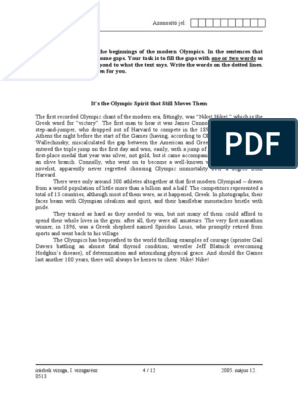0% found this document useful (0 votes)
300 views20 pagesFinite and Nonfinite
This document discusses finite and non-finite verbs in English grammar. Finite verbs are verbs that change form depending on subject number and tense, while non-finite verbs do not change form. The main types of non-finite verbs are infinitives, gerunds, and participles. Infinitives can be simple or gerundial, and bare infinitives do not use "to" with certain verbs. Gerunds act as nouns, while present, past and perfect participles can act as adjectives and describe verbs.
Uploaded by
Rika Rahayu NingsihCopyright
© © All Rights Reserved
We take content rights seriously. If you suspect this is your content, claim it here.
Available Formats
Download as PDF, TXT or read online on Scribd
0% found this document useful (0 votes)
300 views20 pagesFinite and Nonfinite
This document discusses finite and non-finite verbs in English grammar. Finite verbs are verbs that change form depending on subject number and tense, while non-finite verbs do not change form. The main types of non-finite verbs are infinitives, gerunds, and participles. Infinitives can be simple or gerundial, and bare infinitives do not use "to" with certain verbs. Gerunds act as nouns, while present, past and perfect participles can act as adjectives and describe verbs.
Uploaded by
Rika Rahayu NingsihCopyright
© © All Rights Reserved
We take content rights seriously. If you suspect this is your content, claim it here.
Available Formats
Download as PDF, TXT or read online on Scribd
/ 20





























































































